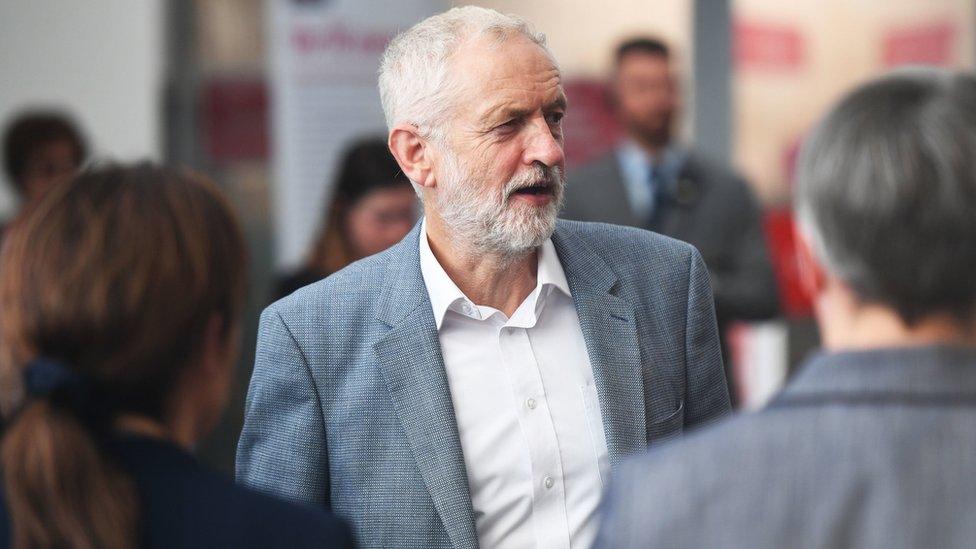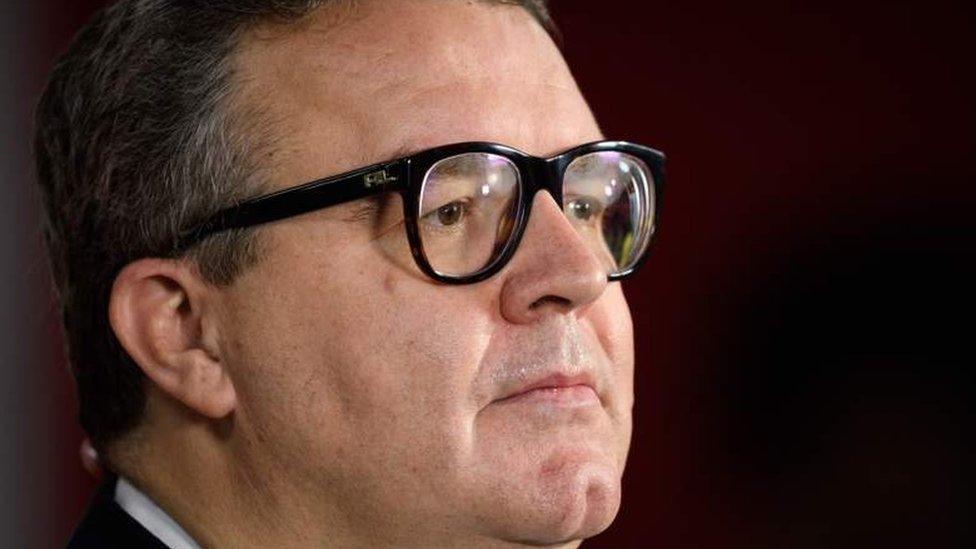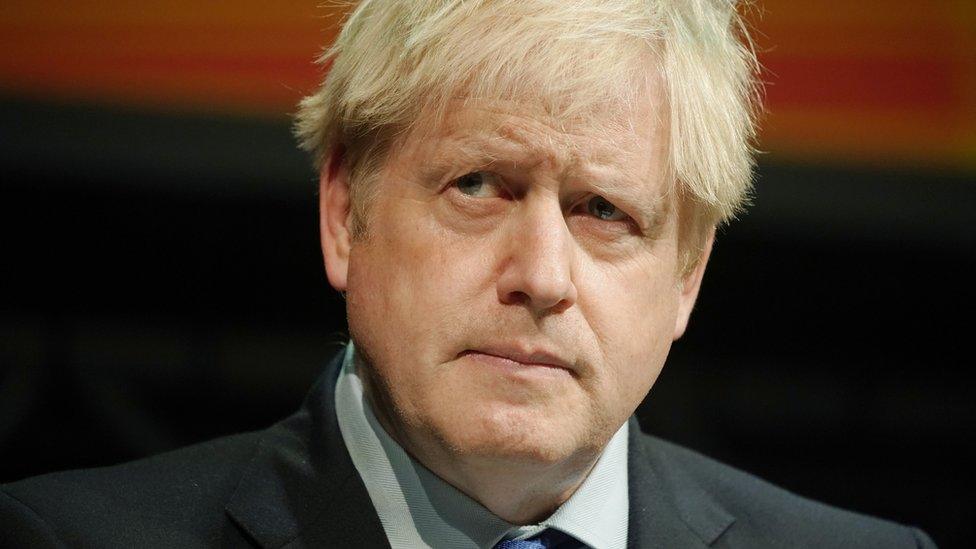Midlands questions for Jeremy Corbyn
- Published

The new numbers game: Jeremy Corbyn faces a binary question amid a Tory 12-point lead, 'five-party politics' and the supposedly magic sum of 35
The right of reply?
When Ian Austin lambasted Jeremy Corbyn during the Commons' brief but acrimonious sitting before its prorogation last week, the Labour leader simply had to sit there and take it. The former Labour MP for Dudley North now sits as an Independent, having quit the party over what he sees as its failure to deal with anti-Semitism in its own ranks.
Mr Austin had the air of a man who was getting things off his chest and settling some old scores when he accused Mr Corbyn of allowing racism against Jewish people while defending extremists and terrorists: the IRA, Hamas and Hezbollah for example.
So I'll be offering Mr Corbyn his right of reply in the latest of my interviews with the main Parliamentary party leaders in the run-up to their respective annual conferences.
Mr Austin claimed he was merely "standing up for the values which used to define the Labour Party". What does Mr Corbyn say to that?
And there are plenty more questions where that one came from...
Has Tom Watson "gone rogue"?
That's the accusation I spotted recently on Twitter, prompted no doubt by the call from the party's deputy leader and West Bromwich East MP for a referendum first and foremost, before any general election. In open defiance of his leader, Mr Watson continues to argue for the party to adopt an avowedly pro-Remain strategy or risk losing the general election when it finally materialises.

Has Labour's deputy leader and West Bromwich East MP 'gone rogue'?
By contrast, Mr Corbyn wants a general election first, followed by a referendum in which a deal negotiated by his government would then be put to the people with "a credible option" for Leave.
So here we have the leader and deputy leader of the Opposition in a very public fight over the defining issue of our time. What makes it even more serious is that it further exposes the same divisions within the party.
On one side are the predominantly Remain-supporting party members and activists. On the other, Leave supporters including influential union backers like Len McCluskey, plus of course the millions of Brexit supporters in traditional Labour areas like the Black Country and North Staffordshire.
It's here where the party faces a real challenge, not just to hold its support, but to regain it in places like Walsall North and Stoke-on-Trent South which switched to the Conservatives at the last election.
Binary question?
Be it a threat or a promise, an imminent general election normally concentrates Labour's minds for the sake of party unity.
But these are not normal times and recent developments merely add to the pressure piling up on it.
"Constructive ambiguity" may have helped the party to avoid burning its boats with either side. But the other main parties are conspiring to make it more and more difficult for "Team Corbyn" to have it both ways. Faced with a binary question, there is precious little scope for anything that looks like half measures.

There are ructions for Remainers in Boris Johnson's party, but how might that play to Leavers in the Midlands?
The recent "purge" of Conservative, Remain-supporting MPs may be causing ructions in Boris Johnson's party but at least it enables the Tories to present a clearer message of Brexit-delivery to predominantly Leave-supporting voters in the Walsalls and the Stokes. Throw-in the Tories' 12-point lead in recent opinion polls and the stage may soon be set for Boris Johnson's chief adviser, Dominic Cummings, to test the so-called "35% strategy" - the theory that in this age of four or even five-party politics, a 35% share of the vote may be enough to secure a working Commons majority.
Meanwhile, the resurgent Liberal Democrats' brazen commitment to revoke Brexit without another referendum is a straightforward invitation to Remain supporters in Labour seats like Warwick and Leamington.
Who wants an election?
Boris Johnson says he doesn't. But with no majority in a House of Commons apparently trying to thwart his every turn, that didn't stop him calling Mr Corbyn "frit" for denying him a snap election next month.
Mr Corbyn insists it's not for him to facilitate Mr Johnson's timing.
But aren't Opposition leaders always supposed to want an election at the earliest possible opportunity?
Does it not play into Mr Johnson's hands for Mr Corbyn to be seen to block an early poll? When Mr Corbyn accused him of acting like a dictator by proroguing Parliament, Mr Johnson taunted him that dictators aren't usually the ones calling for an election.
So we have no shortage of talking points for Sunday Politics Midlands at 10:00 on BBC One on Sunday 22 September.
